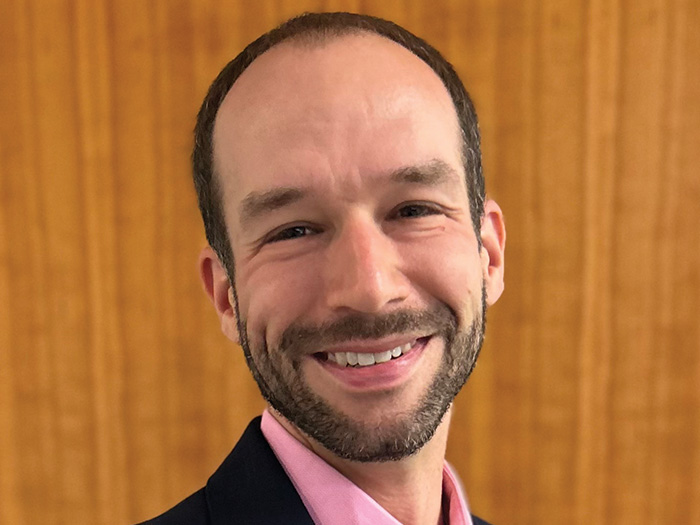United Airlines’ Drew Cortese on His Leap into the Workers’ Compensation Profession
Like most people, I fell into this industry. As my co-panelist for NWCDC, Barry Bloom, managing principal of The BDB Group, recently wrote, we have a talent shortage in our industry and need to begin finding more ways for younger generations, like Millennials and even Gen Z, to enter our industry.
Millennials now make up the largest generation in the workforce.
My Millennial experience in workers’ comp — not making a strategic decision to join — might be representative of the experience others had or will have. In order to recruit the next generation of workers, we need to understand what challenges they face and how to set them up for success so they want to stay for the long-run.
When I got out of college, I worked in corporate finance and accounting. I was first introduced to workers’ compensation through Aon.
I didn’t work in claims consulting but in finance, working with the casualty consulting groups. Eventually, I was recommended for an open role at United Airlines. I’ve been in workers’ compensation with United for three years now as senior manager of analytics.
I was interested in the role, because I had reached a bottleneck in terms of my career progression.
At United, I was given the opportunity to lead my own team. I had the chance to make the role into what I wanted it to be. I could also contribute a perspective of someone outside of the industry, as someone who might look at things in a different way. This type of opportunity appeals to many Millennials and is a critical component when thinking about the future recruitment for workers’ compensation.
Integrating into the Industry
For younger generations coming into a new industry, integrating into areas of expertise can be a challenge. Many don’t have a background or training in workers’ compensation.
When I started, I got a binder with program service instructions, and that was a significant part of my formal training on the Work Comp system, even though I had much more to learn.
As someone who had not been a claims adjuster, who had no experience with medical management or had any other related role, I had many questions coming in from the outside:
- How does workers’ compensation even work?
- Who are the people and partners in the industry?
- What do all of these acronyms mean? (C&R? MMI?)
For newcomers, learning about the industry and gaining that knowledge can be a large obstacle. That challenge can be exacerbated by undocumented knowledge from those that have been in the industry for years that I need in order to do my job effectively.
Generations Working Together
When I started at United, and in workers’ comp in general, there was a long-tenured workforce.
Procedures and industry knowledge were not captured anywhere. At the same time, a lot of the procedures had not changed in many years.
When I came into my role, I wasn’t trying to upset the status quo, but I was trying to bring a different analytical and finance mindset in to complement their expertise.
When young workers enter this industry, they often have fresh ideas to contribute but can sometimes face the “this is the way we’ve always done things” mentality. It was important for me to get my team and colleagues to buy in, and I used analytics to help them understand that what worked in the past might not still be the best option.
I sat with them and learned alongside them’ I read contracts and I learned a lot that way. Those who have established industry knowledge can contribute that knowledge of the industry and younger generations can share ideas and what they have seen in other industries by working together.
Those established in the industry also have relationships with others in a more expansive network. As most of us know, this is a pretty tight-knit industry. Younger generations coming in do not have access to the connections that more tenured colleagues have. My colleagues helped me grow by including me on phone calls, introducing me to their contacts and giving me networking opportunities.
A Plan for Success
So how can we set younger generations up for success in our industry so they want to stay?
1. Empower younger people with important projects — People are not going to stay in our industry if they’re not engaged and if they don’t feel like they are a part of the core strategy. We can retain younger hires by empowering them with a key project or presentation to someone who they wouldn’t normally give. Give them fun and important projects to work on that will challenge them and enable them to grow.
2. Allow them to make decisions
3. Allow them to fail and learn lessons
Points two and three go hand in hand. We need to be willing to give responsibility to younger generations to make their own decisions and allow them to fail and grow. We need to learn how to fail fast, a concept that I don’t think has been openly accepted in our industry. In order to learn, people need to be able to make a decision that doesn’t work out and learn why so they make a different decision next time.
By recognizing the hurdles younger generations may face when entering workers’ compensation, we can better set them up for success. &
 Want to hear more about how to set younger generations up for success? The panel discussion “Passing the Torch Without a Stumble: The Coming Decade of Transition from Old to Young” at the National Workers’ Compensation and Disability Conference, including live Q&A, will be held on October 21st from 3:30-4:30PM EST. The panel, comprised of Baby Boomers and Millennials alike, will speak to the challenges we face with generational transitions and how we can create a successful roadmap for recruitment, mentorship, advancement, and retention of talent along with retention of clients.
Want to hear more about how to set younger generations up for success? The panel discussion “Passing the Torch Without a Stumble: The Coming Decade of Transition from Old to Young” at the National Workers’ Compensation and Disability Conference, including live Q&A, will be held on October 21st from 3:30-4:30PM EST. The panel, comprised of Baby Boomers and Millennials alike, will speak to the challenges we face with generational transitions and how we can create a successful roadmap for recruitment, mentorship, advancement, and retention of talent along with retention of clients.
This session will be led by Mark Pew – Senior VP, Product Development & Marketing, Preferred Medical. Panelists include:
Barry Bloom – Managing Principal at The bdb Group
Marques Torbert – CEO of Ametros
Claire Muselman – Director of Workers’ Compensation, Continental Western Group
Drew Cortese – Senior Manager, United Airlines
You can register for the session here.










